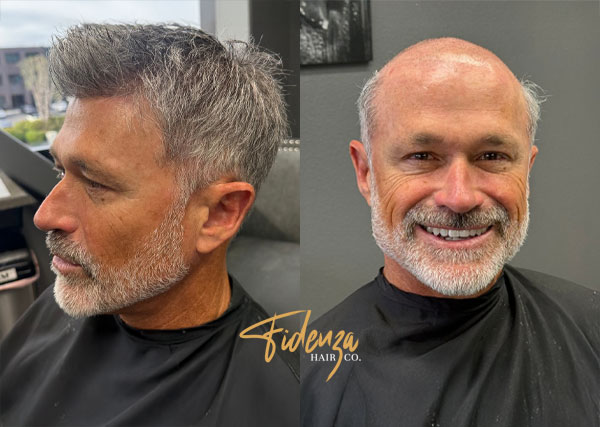Early Days: Patience is Key
When you start using a hair loss shampoo, it’s natural to hope for immediate results. After all, the promise of restoring or retaining your hair can feel urgent. However, it’s important to manage your expectations in those early days. Hair growth cycles operate over months, not weeks, so visible changes won’t happen overnight. If a shampoo claims to provide instant hair regrowth, it’s a red flag. According to hair restoration specialists, what you might notice initially is an improvement in the texture or cleanliness of your hair and scalp. While this can be a positive sign of a healthy scalp environment, it’s far from proof that the shampoo is addressing hair loss at its root cause.
Understanding Hair Shedding vs. Hair Loss
One common experience with hair loss shampoos is an increase in shedding shortly after starting use. This phenomenon, often alarming to users, is sometimes framed as a sign that the product is working—a “purge” of weak or damaged hairs to make way for new growth. However, this explanation can be misleading. Increased shedding can also indicate that the product’s active ingredients are irritating your scalp or weakening hair follicles. If excessive shedding continues beyond a few weeks, it’s worth considering whether the shampoo is exacerbating your hair loss rather than helping it. Consulting with a hair loss specialist can help you determine whether the shedding is a natural part of your hair’s growth cycle or a sign of deeper issues.
The Role of Ingredients: Claims vs. Reality
Many hair loss shampoos market themselves with promises tied to specific ingredients, such as biotin, caffeine, or saw palmetto. While some of these ingredients have been studied for their potential benefits, the evidence is often limited or inconclusive. A shampoo’s ability to stimulate hair regrowth is constrained by the fact that it’s only in contact with your scalp for a short period during washing. While a shampoo might promote a cleaner, healthier scalp, its ability to deliver active ingredients deeply enough to affect hair follicles is debatable. If you’re not noticing any changes in the condition of your scalp or hair’s appearance after consistent use over several months, it’s a good indication that the shampoo isn’t living up to its claims.
Short-Term Benefits vs. Long-Term Results
Hair loss shampoos often tout benefits like thicker or fuller-looking hair. In many cases, this effect is cosmetic rather than therapeutic. Ingredients like keratin, collagen, or silicones can coat the hair shaft, temporarily making hair appear denser. While this can provide a confidence boost, it’s important to understand that such changes don’t address the underlying causes of hair loss. Long-term results, such as sustained regrowth or significantly reduced shedding, are rarely achieved with shampoos alone. If your hair loss persists or worsens despite using these products, it’s a clear sign that you need to explore alternative treatments.
When to Seek Professional Help
If you’ve been faithfully using a hair loss shampoo for several months without noticeable improvement, it may be time to seek professional advice. Hair loss is often caused by complex factors, including genetics, hormonal imbalances, and medical conditions, none of which can be effectively addressed by shampoo alone. A certified hair loss specialist or trichologist can assess your specific situation, identify the root causes of your hair loss, and recommend evidence-based treatments. Options such as prescription medications, laser therapy, or hair restoration procedures may offer more tangible and lasting results. Consulting a professional ensures you’re not wasting time and money on ineffective solutions.
Hair Loss Shampoos: Fact and Fiction
While hair loss shampoos are often marketed as a simple fix, the reality is that their effectiveness is limited. They may improve the overall condition of your scalp and hair, but they’re unlikely to stop or reverse significant hair loss. Paying attention to how your hair and scalp respond to these products over time can help you determine whether they’re worth continuing. Ultimately, addressing hair loss often requires a more comprehensive approach guided by a professional hair restoration specialist. If you’re serious about tackling hair loss, don’t hesitate to seek professional advice. It’s the most reliable way to find a solution that works for you.







